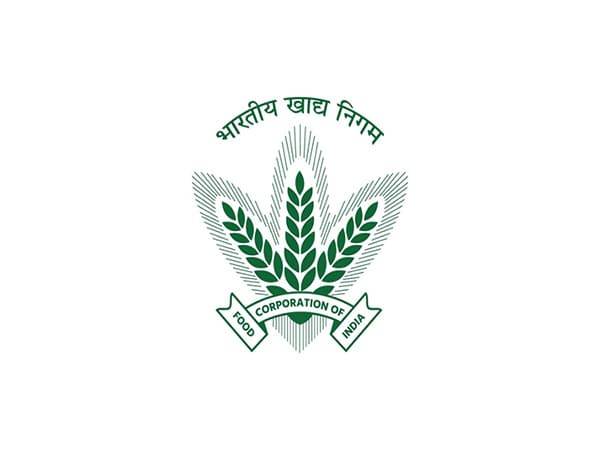Main Points In Hindi (मुख्य बातें – हिंदी में)
-
चुनौतियाँ और पारंपरिक भंडारण विधियाँ: भारत लंबे समय से खाद्यान्न फसल का कुशल भंडारण करने की चुनौतियों का सामना कर रहा है। पारंपरिक गोदामों और खुली हवा (सीएपी) भंडारण सुविधाओं ने अपना उद्देश्य पूरा किया है, लेकिन उन्हें पर्यावरणीय कारकों, कीटों, आदि से नुकसान का खतरा है।
-
अनाज साइलो का महत्व: अनाज साइलो आधुनिक भंडारण समाधान के रूप में उभरे हैं, जो पारंपरिक विधियों की सीमाओं को पार करते हुए बेहतर भंडारण बुनियादी ढांचे और खाद्य सुरक्षा को साकर करने की दिशा में महत्वपूर्ण कदम पेश करते हैं।
-
भूमि उपयोग और लागत बचत: ग्रेन साइलो का कॉम्पैक्ट डिज़ाइन पारंपरिक गोदामों की तुलना में कम भूमि क्षेत्र की आवश्यकता करता है, जिससे निर्माण और भूमि अधिग्रहण में खर्च में कमी आती है। इसके अलावा, थोक प्रबंधन से संसाधनों की बचत होती है।
-
किसान-हितैषी लाभ: अनाज साइलो किसानों के लिए फायदेमंद हैं, क्योंकि ये उन्हें अपनी उपज को जल्दी बेचने की सुविधा देते हैं, जिससे उनका समय बचता है और वे कृषि गतिविधियों पर अधिक ध्यान केंद्रित कर सकते हैं।
- जलवायु प्रतिरोधी भंडारण और खाद्य सुरक्षा: साइलो तत्वों से सुरक्षा प्रदान करते हैं, जिससे फसलों की गुणवत्ता लंबे समय तक बनी रहती है। इसके परिणामस्वरूप खाद्य सुरक्षा सुनिश्चित होती है, विशेषकर कमी या अकाल वाले क्षेत्रों में।
Main Points In English(मुख्य बातें – अंग्रेज़ी में)
Here are the main points from the article regarding India’s grain storage challenges and the introduction of modern grain silos:
-
Historical Storage Challenges: India has long struggled with effectively storing its abundant food crops. Traditional storage methods, like conventional warehouses and open-air (CAP) facilities, have faced significant issues due to exposure to elements and pests, leading to damages.
-
Introduction of Grain Silos: The implementation of advanced grain silos, facilitated through public-private partnerships, is a strategic response to improve storage infrastructure and bolster food security in India. These silos offer a modern solution that addresses many long-standing storage challenges.
-
Optimized Land Use and Cost-Effectiveness: Grain silos have a compact design that requires significantly less land than traditional warehouses, translating to substantial cost savings in land acquisition and construction for the government.
-
Automation and Efficiency: These silos symbolize modern operations with fully automated systems that minimize labor dependency, enhance efficiency, and ensure accurate and timely storage and processing of crops.
- Enhanced Food Security and Sustainability: The adoption of grain silos contributes to long-term preservation and distribution of essential food items, particularly in regions prone to shortages or famine. Additionally, their efficient management helps reduce food waste and environmental impacts from agriculture, promoting sustainability.
The government’s focus on silos, initially targeting wheat storage, has the potential for expansion to accommodate a wider variety of grains, which would further enhance India’s food security and resilience in agricultural systems.


Complete News In Hindi(पूरी खबर – हिंदी में)
पीएनएन
नई दिल्ली [India]14 अक्टूबर: भारत लंबे समय से अपनी प्रचुर खाद्यान्न फसल का कुशलतापूर्वक भंडारण करने की चुनौती से जूझ रहा है। ऐतिहासिक रूप से, भारत के अनाज भंडारण पर पारंपरिक गोदामों और खुली हवा (सीएपी) भंडारण सुविधाओं का वर्चस्व रहा है। हालांकि इन प्राचीन भंडारण विधियों ने अपना उद्देश्य पूरा किया है, लेकिन तत्वों, कीटों और अन्य पर्यावरणीय कारकों के संपर्क के कारण उन्हें महत्वपूर्ण नुकसान होने का भी खतरा है। कृषि भंडारण समाधानों की लगातार विकसित हो रही दुनिया में, अनाज साइलो एक गेम-चेंजर के रूप में उभरा है, जो पारंपरिक भंडारण विधियों से परे कई फायदे पेश करता है। जैसे-जैसे खाद्य क्षेत्र बढ़ी हुई उत्पादकता, लागत-प्रभावशीलता और स्थिरता की चुनौतियों से निपटता है, ये विशाल संरचनाएं कई गंभीर चिंताओं का जवाब साबित हुई हैं।
तकनीकी परिवर्तनों के साथ तालमेल रखते हुए, खाद्य एवं सार्वजनिक वितरण विभाग ने भारतीय खाद्य निगम के सहयोग से एक आशाजनक समाधान पेश किया है – सार्वजनिक-निजी भागीदारी के माध्यम से अत्याधुनिक अनाज साइलो का निर्माण। यह रणनीतिक कदम न केवल बेहतर भंडारण बुनियादी ढांचे की तत्काल आवश्यकता को संबोधित करता है बल्कि देश की खाद्य सुरक्षा को मजबूत करने के लिए सरकार की प्रतिबद्धता के प्रमाण के रूप में भी कार्य करता है। आधुनिक अनाज साइलो के कार्यान्वयन का उद्देश्य भंडारण संबंधी चुनौतियों को कम करना और भारत द्वारा अपनी महत्वपूर्ण कृषि वस्तुओं के भंडारण के तरीके में क्रांतिकारी बदलाव लाना है। सिर्फ एक भंडारण सुविधा से कहीं अधिक, ये विशाल संरचनाएं खाद्य सुरक्षा की रीढ़ बन गई हैं, जो उनके उपयोगितावादी उद्देश्य से परे कई लाभ प्रदान करती हैं।
भूमि उपयोग का अनुकूलन:
ग्रेन साइलो की सबसे खास विशेषताओं में से एक उनका कॉम्पैक्ट डिज़ाइन है। 100 फीट से अधिक ऊंची इन संरचनाओं के लिए पारंपरिक गोदामों की तुलना में काफी कम भूमि क्षेत्र की आवश्यकता होती है। यह कॉम्पैक्ट पदचिह्न निर्माण और भूमि अधिग्रहण में पर्याप्त लागत बचत का अनुवाद करता है, जिससे वे सरकार के लिए अधिक किफायती विकल्प बन जाते हैं।
स्वचालन और मशीनीकरण:
अनाज साइलो आधुनिक, सुव्यवस्थित संचालन का प्रतीक हैं। पूरी तरह से स्वचालित और मशीनीकृत प्रणाली के साथ, खाद्यान्नों की हैंडलिंग पूरी तरह से स्वचालित है, जिससे मैन्युअल श्रम पर निर्भरता समाप्त हो जाती है। इससे न केवल श्रम लागत कम होती है बल्कि दक्षता भी बढ़ती है, जिससे यह सुनिश्चित होता है कि फसलों का भंडारण और प्रसंस्करण सटीकता और गति से किया जाता है।
थोक प्रबंधन और लागत बचत:
ग्रेन साइलो की थोक हैंडलिंग क्षमताएं एक अनूठा लाभ प्रदान करती हैं। थोक रूप में खाद्यान्नों का भण्डारण एवं परिवहन करने से महँगे बारदानों की आवश्यकता समाप्त हो जाती है। इससे राष्ट्रीय खजाने के लिए पर्याप्त मात्रा में संसाधनों की बचत होती है, क्योंकि हैंडलिंग, सफाई, वजन, पैकेजिंग और परिवहन से जुड़े मंडी खर्च काफी कम हो जाते हैं।
किसान-हितैषी लाभ:
अनाज साइलो किसानों के लिए वरदान साबित हुए हैं, जो अक्सर पारंपरिक मंडी प्रणाली की चुनौतियों का सामना करते हैं। साइलो के कार्यान्वयन के साथ, जिन्हें आम तौर पर राज्य सरकार द्वारा ‘साइलो मंडी यार्ड’ के रूप में अधिसूचित किया जाता है, किसान अपनी उपज को भारतीय खाद्य निगम (एफसीआई) या राज्य खरीद एजेंसियों जैसी एजेंसियों को जल्दी से बेच सकते हैं, बिना प्रतीक्षा किए। भुगतान सहित अपना लेनदेन पूरा करने के लिए दिन। इससे किसानों का समय बच जाता है और वे अपनी मुख्य कृषि गतिविधियों पर ध्यान केंद्रित कर पाते हैं।
मौसम प्रतिरोधी भंडारण और विस्तारित शेल्फ जीवन:
अनाज सिलोस तत्वों के खिलाफ अद्वितीय सुरक्षा प्रदान करते हैं, संग्रहीत फसलों को खराब मौसम के प्रतिकूल प्रभावों से बचाते हैं। यह खाद्यान्नों की गुणवत्ता और पोषण मूल्य की रक्षा करता है, यह सुनिश्चित करता है कि वे लंबे समय तक अपनी ताजगी बनाए रखें। इसके अतिरिक्त, साइलो के भीतर नियंत्रित भंडारण की स्थिति लंबी शेल्फ लाइफ में योगदान करती है, समग्र भंडारण दक्षता को बढ़ाती है और देश के रणनीतिक आरक्षित स्टॉक के भंडारण जीवन में सुधार करती है।
उन्नत खाद्य सुरक्षा और स्थिरता:
अनाज साइलो को व्यापक रूप से अपनाने का खाद्य सुरक्षा और स्थिरता पर दूरगामी प्रभाव पड़ता है। एक विश्वसनीय भंडारण बुनियादी ढाँचा प्रदान करके, ये संरचनाएँ मुख्य खाद्य पदार्थों के दीर्घकालिक संरक्षण और वितरण की सुविधा प्रदान करती हैं, विशेष रूप से कमी या अकाल वाले क्षेत्रों में। इसके अलावा, अनाज का कुशल प्रबंधन और संरक्षण अपशिष्ट को कम करके और कृषि क्षेत्र के पर्यावरणीय प्रभाव को कम करके स्थिरता को बढ़ावा देता है।
साइलो विकसित करने पर सरकार का ध्यान एक स्वागत योग्य कदम है, क्योंकि इस पहल ने अब तक मुख्य रूप से गेहूं के भंडारण को लक्षित किया है। हालाँकि, इस प्रयास की वास्तविक क्षमता गेहूं से आगे विस्तार करने और चावल, मक्का, दालें और बाजरा सहित विभिन्न प्रकार के अनाज को शामिल करने की क्षमता में निहित है। अनाज की एक विस्तृत श्रृंखला को शामिल करने के लिए साइलो नेटवर्क के विविधीकरण से आपूर्ति, मौसम के पैटर्न और बाजार की गतिशीलता में उतार-चढ़ाव को संबोधित करने की सरकार की क्षमता पर गहरा प्रभाव पड़ेगा, जो अंततः देश की दीर्घकालिक खाद्य सुरक्षा और भारत के समग्र लचीलेपन में योगदान देगा। खाद्य प्रणालियाँ.
सार्वजनिक-निजी भागीदारी के माध्यम से अत्याधुनिक अनाज साइलो बनाकर, सरकार ने निजी क्षेत्र की विशेषज्ञता और संसाधनों का उपयोग किया है, जिससे इन महत्वपूर्ण भंडारण सुविधाओं का कुशल और लागत प्रभावी विकास सुनिश्चित हुआ है। यह सहयोगात्मक दृष्टिकोण न केवल नवीनतम प्रौद्योगिकियों और सर्वोत्तम प्रथाओं का लाभ उठाता है बल्कि भारत की खाद्य सुरक्षा की सुरक्षा में साझा जिम्मेदारी की भावना को भी बढ़ावा देता है। जैसे-जैसे देश इस दिशा में आगे बढ़ रहा है, इसका लाभ किसानों से लेकर उपभोक्ताओं तक कृषि मूल्य श्रृंखला में महसूस किया जाएगा। भंडारण बुनियादी ढांचे में यह रणनीतिक निवेश न केवल भारत की खाद्य आपूर्ति को सुरक्षित करता है बल्कि देश को टिकाऊ और कुशल खाद्य प्रबंधन में वैश्विक नेता के रूप में भी स्थापित करता है।
लेखक, पुनीत मेहंदीरत्ता, एक उद्योग विशेषज्ञ और एसोसिएशन ऑफ साइलो डेवलपर्स एंड ऑपरेटर्स (एएसडीओ) के उपाध्यक्ष हैं।
(विज्ञापन अस्वीकरण: उपरोक्त प्रेस विज्ञप्ति पीएनएन द्वारा प्रदान की गई है। एएनआई इसकी सामग्री के लिए किसी भी तरह से जिम्मेदार नहीं होगा)
अस्वीकरण: कोई भी बिजनेस स्टैंडर्ड पत्रकार इस सामग्री के निर्माण में शामिल नहीं था
पहले प्रकाशित: 14 अक्टूबर 2024 | शाम 7:00 बजे प्रथम
Complete News In English(पूरी खबर – अंग्रेज़ी में)
PNN Report – New Delhi, India – October 14:


India has long faced challenges in efficiently storing its abundant food crops. Traditionally, the country relied on conventional warehouses and outdoor storage methods, which, while functional, exposed grain to damage from weather, pests, and other environmental factors. In the evolving landscape of agricultural storage solutions, grain silos have emerged as a game-changer, offering numerous advantages over traditional methods. As the food sector grapples with increased productivity, cost-effectiveness, and sustainability issues, these massive structures have addressed several critical concerns.
To keep pace with technological advancements, the Department of Food and Public Distribution, in collaboration with the Food Corporation of India, has proposed an innovative solution: the construction of state-of-the-art grain silos through public-private partnerships. This strategic initiative not only meets the urgent need for better storage infrastructure but also demonstrates the government’s commitment to enhancing national food security. The goal of implementing modern grain silos is to mitigate storage challenges and revolutionize how India stores its vital agricultural products. Beyond just being storage facilities, these large structures have become a backbone of food security, offering several benefits beyond their utilitarian purpose.
Optimized Land Use:
One of the key features of grain silos is their compact design. At over 100 feet tall, these structures require significantly less land area compared to traditional warehouses, translating into considerable cost savings in construction and land acquisition, making them a more economical option for the government.
Automation and Mechanization:
Grain silos represent modern, streamlined operations. With fully automated and mechanized systems, the handling of food grains is entirely automated, reducing dependency on manual labor. This not only lowers labor costs but also enhances efficiency, ensuring that crops are stored and processed with accuracy and speed.
Bulk Management and Cost Savings:
The bulk handling capabilities of grain silos provide a unique advantage. Storing and transporting grains in bulk eliminates the need for expensive bags, resulting in significant savings for the national treasury, as associated handling, cleaning, weighing, packaging, and transportation costs are reduced.
Farmer-Friendly Benefits:
Grain silos have been a boon for farmers who often face challenges within traditional market systems. With the implementation of these silos, typically designated as ‘silo mandi yards’ by state governments, farmers can quickly sell their produce to agencies like the Food Corporation of India (FCI) or state procurement agencies without unnecessary delays. This saves farmers time, allowing them to focus on their core agricultural activities.
Weather-Resistant Storage and Extended Shelf Life:
Grain silos provide exceptional protection against the elements, shielding stored crops from adverse weather effects. This preservation ensures that the quality and nutritional value of the food grains are maintained for longer periods. Additionally, the controlled storage conditions within the silos contribute to an extended shelf life, improving overall storage efficiency and the longevity of strategic reserve stocks.
Enhanced Food Security and Sustainability:
The widespread adoption of grain silos has significant implications for food security and sustainability. By providing a reliable storage infrastructure, these facilities facilitate the long-term preservation and distribution of staple foods, especially in areas prone to shortages or droughts. Furthermore, efficient management and preservation of grains reduce waste and minimize the agricultural sector’s environmental impact, promoting sustainability.
The government’s focus on developing silos is a welcome initiative, primarily targeting wheat storage so far. However, the true potential of this effort lies in its ability to expand beyond wheat, incorporating various grains such as rice, maize, pulses, and millet. Diversifying the silo network to include a wider range of grains will profoundly impact the government’s capacity to respond to fluctuations in supply, weather patterns, and market dynamics, ultimately contributing to the country’s long-term food security and resilience in agricultural systems.
By establishing state-of-the-art grain silos through public-private partnerships, the government has harnessed the expertise and resources of the private sector, ensuring an efficient and cost-effective development of these essential storage facilities. This collaborative approach not only leverages the latest technologies and best practices but also fosters a sense of shared responsibility in safeguarding India’s food security. As the country moves forward in this direction, both farmers and consumers throughout the agricultural value chain will feel the positive effects. This strategic investment in storage infrastructure not only secures India’s food supply but also positions the nation as a global leader in sustainable and efficient food management.
The author, Puneet Mehendiratta, is an industry expert and Vice President of the Association of Silo Developers and Operators (ASDO).
(Disclaimer: The above press release is provided by PNN. ANI is not responsible for its content.)
Disclaimer: No Business Standard journalist was involved in the creation of this content.




